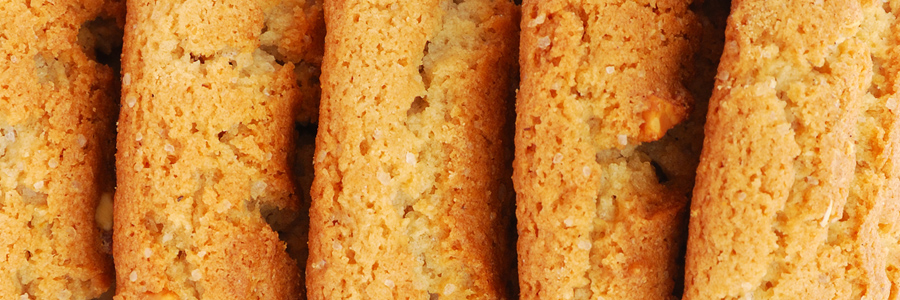Small children’s teeth are at risk from sugary biscuits specially designed for babies and toddlers, according to a report from watchdog the Food Commission.
The report finds that the biscuits are sweeter than jam tarts or doughnuts.
Sweet biscuits are already the number one cause of tooth decay in infants under two years of age.
And a new generation of highly-sugared biscuits, snacks and cereal bars are coming onto the market.
The Food Commission survey found 50% sugar in Nestle Fruit Stick and 37% in Boots Teddy Bear biscuits, compared with 36% in a jam tart.
Traditional Farley’s Rusks (29%) have more sugar than a chocolate digestive (27%).
Even so-called “reduced sugar” products from Farleys (21%) and Hipp (21%) had more sugar than a jam doughnut (19%).
Government advice tells parents to cut back on sweet foods between meals, yet Nestle describes its sweetest products as “ideal snacks” and “fun snacks”.
Only five out of the 22 products examined were virtually sugar free.
But one of these products – Nestle Sesame Sticks – contained sesame seeds, an ingredient which is second only to nuts as a cause of severe allergic reactions.
Weak regulations
Dr Tim Lobstein, author of the report, said: “The baby food regulations are very weak.
“Manufacturers exploit this in order to label highly sweetened products as specially suitable for infants.
“Parents should look carefully at the small print and put the highly sweetened brands back on the shelf.”
Biscuits are the sweet food most commonly eaten by children.
More than twice as many two-year-olds eat biscuits daily as drink sweetened juices or fruit drinks.
Biscuits have been strongly linked to an increased risk of tooth damage.
Eleven percent of frequent biscuit eaters develop teeth damage before they are 30 months old, compared with 1% of infants who eat biscuits less than once a day.
Tighter limits needed
The Food Commission is calling for tighter limits on the amount of sugar allowed in foods sold specially for babies and infants.
Boots issued a statement which said all baby and toddler food was clearly labelled with nutrition information.
The statement said: “Boots Toddler Biscuits are specially formulated in line with the latest government regulations and are nutritionally appropriate for this age group.”
Nestle issued a statement about Fruit Stick in which they defended the product as a “blend of dried fruits and cereal designed to encourage toddlers to enjoy more fruit in their diets”.
The statement went on: “The ingredients are simply – dried banana, apple juice concentrate, oats, cornflakes, vegetable oil and wafer. Over 98% of the sugar in this product occurs naturally in the dried fruit.”
The British Dental Association (BDA) said all food and drink should be clearly labelled so consumers can identify how much sugar, as well as other ingredients, each product contains.
In a statement, the BDA said: “Parents and carers should look out for sugar-free and low sugar products.”


